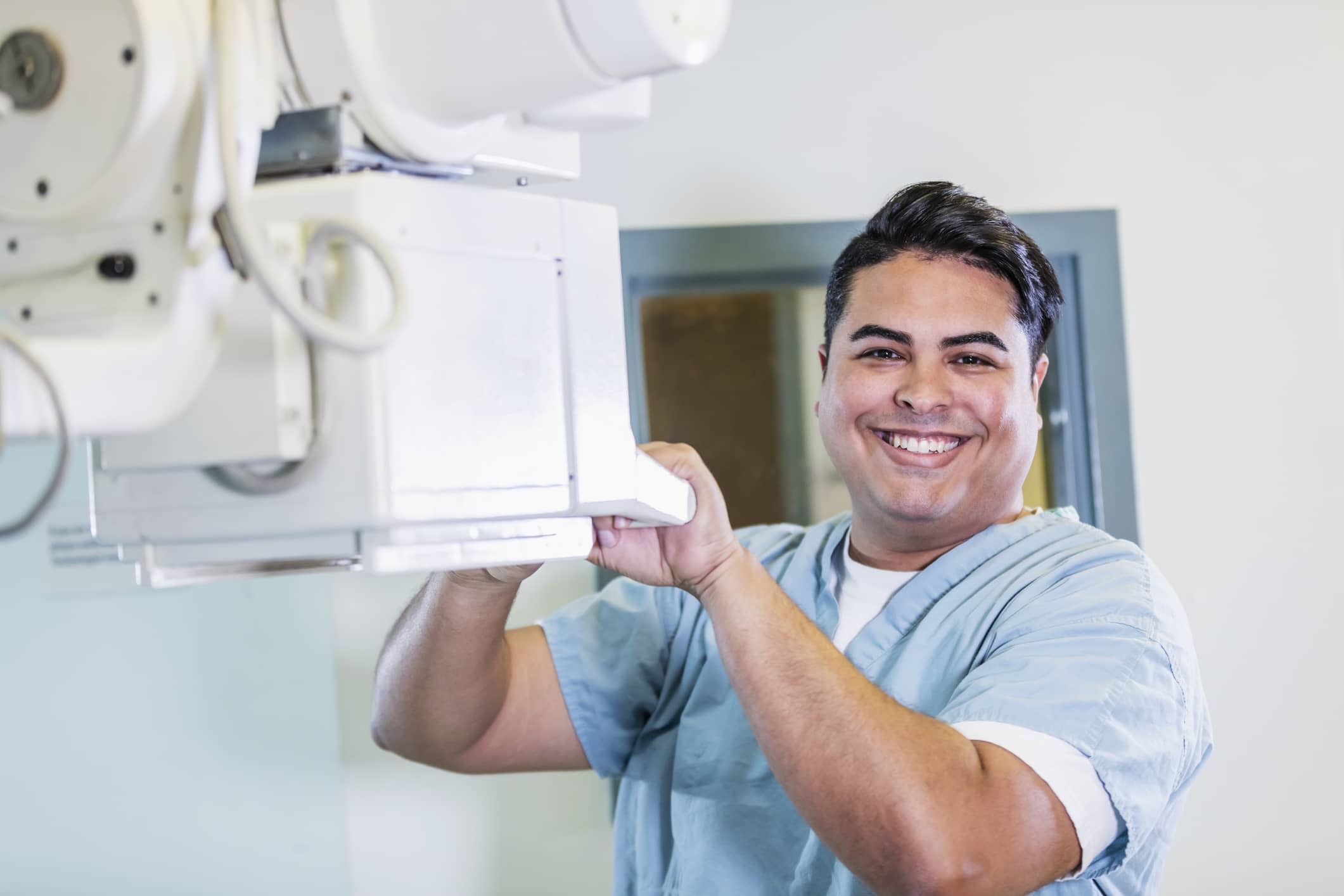
5 Soft Skills Every Traveling Medical Professional Needs
Are you looking to advance your career as an allied healthcare traveler? Then you can’t overlook the importance of soft skills—traits of interpersonal professionalism that employers look for in new hires.
5 Soft Skills for Allied Travelers
Soft skills are crucial because healthcare involves patients, pain, high stress, and ever-evolving unknowns. It’s not enough to know Anatomy or Wound Management. Every traveling medical professional should also be skilled in the following areas.

1. Communication
Anytime a profession involves people, good communication skills are a must. For travel health professionals, the quality of your communication could make all the difference in a patient’s progress, willingness to follow instructions, and comfort in your care.
Good communication skills encompass more than what you say. While verbal acumen is essential to avoiding misunderstandings and conveying meaning, nonverbal cues are just as important to getting your message across. Your tone of voice, body language, and even gestures all communicate, for better or worse, what mere words do not.
Good communication:
- Puts patients at ease
- Clarifies expectations
- Settles disputes amicably
Poor communication:
- Leaves a bored or disengaged impression
- Fails to specify instructions
- Quickly escalates disagreements into arguments
You only have a short time to get to know your team and build trust, so good communication skills will help you avoid conflicts as you learn new systems and meet new people.
2. Openness to Feedback
As a medical professional with a state-issued license, suffice it to say you know what you’re doing. But even the most experienced among us make mistakes, and thinking you’re perfect will make it much harder for you to receive feedback.
Openness to feedback helps you grow and develop as a professional because it allows your coworkers and supervisors to provide input on how you can improve. By staying open, you’ll encounter less conflict at work and will empower your patients to voice their concerns.
Granted, not all negative feedback warrants consideration. Some people will find anything to bellyache about, and the new traveler on the team is an easy target. Listen to their feedback, consider their complaint, and if you know it’s bogus, forget it and move on.
Being open to feedback:
- Listens well
- Learns quickly
- Stays humble
Not being open to feedback:
- Gets defensive
- Blames others or other factors
- Butts heads often
Staying open to feedback will help you quickly assimilate as you encounter changing environments. Refuse to comply with any received criticism, and you’ll surely run into problems—and maybe even jeopardize your contract.
3. Stress Management
It goes without saying that healthcare workers undergo a considerable amount of stress throughout their careers. Although stressful situations are unavoidable, how you manage your stress, especially as it compounds, will show your true colors.
There are two avenues for managing stress: mitigation and recuperation. Good old-fashioned problem-solving can help you defuse a situation before it becomes a ball of fire. And while you can’t always change the circumstances of a stressful situation, you can welcome it as a challenge.
Recuperating from stress is what you do both in the moment and in the aftermath, whether it’s counting to 10, taking a walk, or decompressing with a round of golf. By having a good handle on stress management, you’ll better navigate complex situations, leave work at work, and consider stress a worthy challenge instead of the end of the world.
Good stress management:
- Quickly problem-solves to mitigate stress
- Knows when to take a break
- Uses healthy outlets to decompress
Poor stress management:
- Sets unrealistic expectations
- Becomes easily overwhelmed
- Vents stress through unprofessional behavior or quits
Moving is stressful, let alone learning your way around a new city and new workplace. Stress management will help you avoid volatile interactions and enjoy the challenges of your job, wherever it takes you.
4. Adaptability
Being adaptable means you don’t need things to be “a certain way” everywhere you go, and you don’t rely on a crutch of familiarity to be successful.
The medical field is fraught with change, most of which none of us can control. But quickly adapting to changes—be it policies, procedures, treatment plans, or patient conditions—will help you lose your tunnel vision while staying focused on what matters.
Adaptability:
- Is open-minded
- Transitions quickly to imposed change
- Doesn’t get bogged down in negativity in the process
Inadaptability:
- Is high-maintenance
- Resists change or obliges half-heartedly
- Prizes personal preferences
Besides making your life easier, adaptability is supremely valuable to your future employers. They want to assure their new team member is a quick study and won’t put up a stink about learning a new EMR system.
5. Ultimate Soft Skill: Emotional Intelligence
Finally, the best soft skill for a traveling medical professional is something called EQ: emotional intelligence. As opposed to book smarts, EQ reflects an innate sensitivity to the emotions of others and an ability to manage relationships accordingly.
Emotional intelligence is principally composed of four traits:
- emotional self-awareness
- empathy for the emotions of others
- stress management
- relationship management.
Were this a video game, emotional intelligence would be the soft skill that “unlocks” all the other skills. If you have a high EQ, you’ll recognize when you’re overwhelmed and know how to manage it. Your sensitivity to the emotions of others will help you sidestep workplace conflict and communicate effectively. If interpersonal relationships matter to you, you’ll be more open to feedback and less defensive. In sum, good EQ helps you adapt to a variety of social situations and boosts your professionalism.
So how do you develop emotional intelligence? Like any soft skill, it won’t come from a textbook and certainly won’t come overnight. Soft skills must be developed, over time, through experience, observation, and critique.
Start by learning more about emotional intelligence (I recommend the book Emotional Intelligence 2.0), then consider what you may need to work on. If it isn’t clear to you, ask a trusted coworker, supervisor, or family member, and keep an open mind to their perspective.
As a traveling medical professional, you probably already demonstrate an openness to new experiences and a zest for life. Sharpening these 5 soft skills will help you take your traveling career to the next level of professionalism, poise, and success.
Looking to put your soft skills to use in an allied travel assignment?
Additional Allied Travel Resources
While you continue your search for the perfect allied healthcare position, AMN Healthcare provides great resources to keep your career moving in the right direction. Begin the application process now, and then learn more about how AMN Healthcare can help you keep your career on the move.
- EAP: Our allied travelers gain access to a valuable set of Employee Assistance Program benefits.
- Allied Travel Jobs by Specialty: Explore allied jobs and learn about hourly salaries and the benefits of working in travel jobs.
- Search All Allied Jobs: Uncover new possibilities in your allied career by exploring both short and long-term options.
- Allied Healthcare Jobs: Learn how we can help move your career in amazing directions, both professionally and geographically by exploring opportunities by each state.
- More Allied Resources: Use the content here to learn everything you need to know about our allied recruitment process, including information on salary and benefits.
Latest News
How to have the Best Travel Contract Experience
Being a traveling healthcare professional means having the incredible opportunity to explore new places, get to know new people, and enjoy things you haven’t experienced before.
How to Spend Your Weekends on Assignment in Atlanta
You landed an allied contract in Atlanta, congratulations! With the whole city at your fingertips, you may not know where to start when deciding how to spend your weekends.
Maintaining Healthy Habits While Working as a Travel PT
Finally, staying in touch with and connected to friends is important, as traveling can sometimes feel lonely.
A Traveler’s Guide to Palm Springs, CA
I could live here for the rest of my life and still not have tried every restaurant in the valley because it has SO much to offer.
Advice For First Time Travel Nurses
Securing the ideal travel assignment requires a significant amount of effort and consideration.
The Healthcare Professional’s Guide to Northern California
There’s no better state for healthcare professionals than The Golden State; California truly has it all!
The Healthcare Professional's Guide to Washington, D.C.
Famous for its monuments, museums, and rich history, Washington, D.C. is also a mecca for healthcare professionals.
The Healthcare Professional's Guide to Richmond
One of America’s oldest major cities, Richmond offers a combination of rich history and modern-day amenities.











